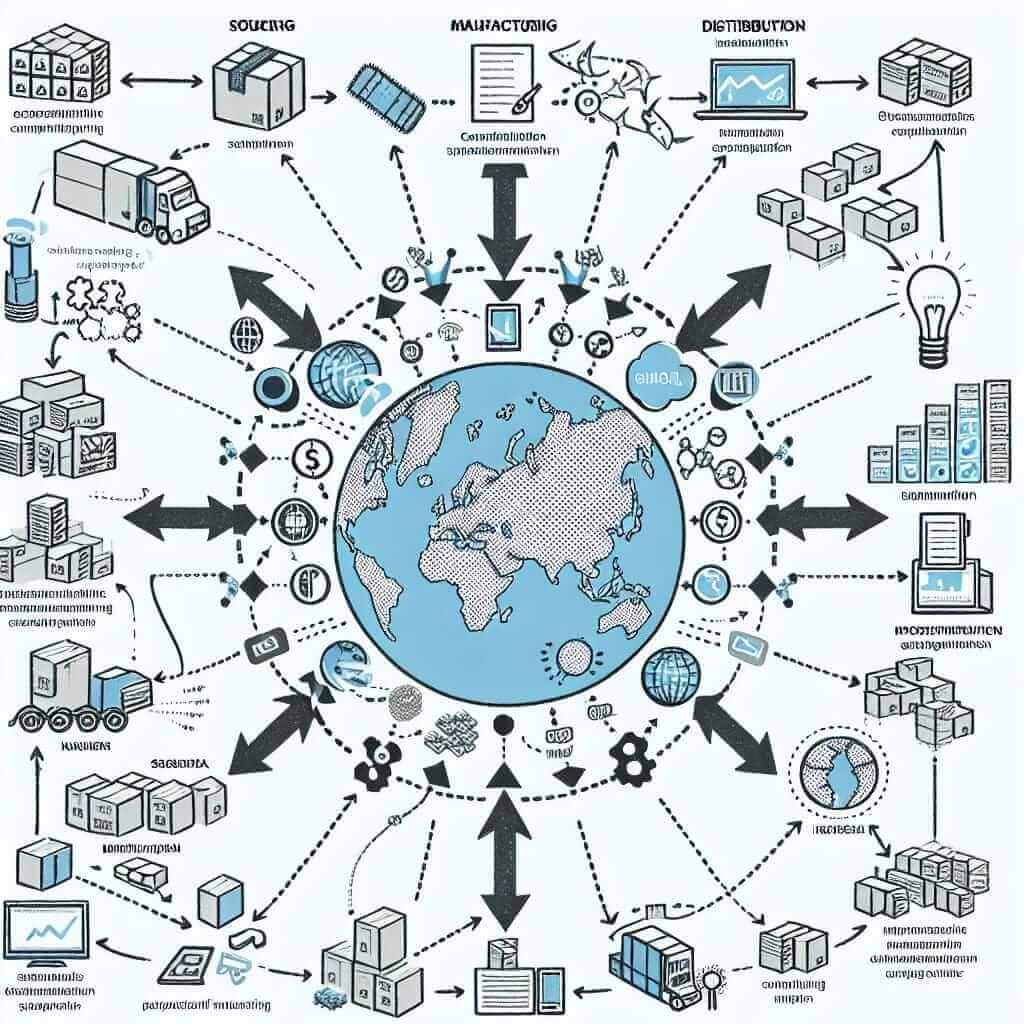“The impact of global supply chains on local economies” is a multifaceted issue frequently appearing in IELTS Writing Task 2. This essay will delve into this topic, providing a sample answer, vocabulary analysis, and writing tips to help you achieve a band 8 score.
Here are a few ways this topic might be presented in the IELTS exam:
- Discuss the advantages and disadvantages of global supply chains for local economies.
- Some people argue that global supply chains benefit developed countries at the expense of developing ones. To what extent do you agree or disagree?
- What are the long-term effects of relying heavily on global supply chains for a country’s economic growth?
Sample Essay: Advantages and Disadvantages of Global Supply Chains
Discuss the advantages and disadvantages of global supply chains for local economies.
Essay Analysis
This essay requires a balanced discussion of both the positive and negative impacts of global supply chains. You should aim to provide specific examples to support your points.
Sample Essay:
Global supply chains, connecting businesses across borders, have dramatically reshaped the landscape of local economies. While these intricate networks offer numerous advantages, they also present certain drawbacks that must be carefully considered.
On the one hand, global supply chains can stimulate economic growth within local communities. By sourcing materials and labor from diverse locations, companies can often reduce production costs, leading to lower prices for consumers and increased demand. This heightened economic activity can translate into job creation, particularly in sectors like manufacturing, logistics, and customer service. For instance, the rise of e-commerce giants like Amazon has fueled the growth of warehousing and delivery services, providing employment opportunities in many regions.
However, the dependence on global supply chains can also pose significant risks to local economies. The interconnected nature of these chains makes them vulnerable to disruptions caused by geopolitical events, natural disasters, or unforeseen crises like pandemics. A prime example is the recent COVID-19 outbreak, which exposed the fragility of global supply chains and led to widespread shortages and economic downturns. Moreover, the pursuit of low-cost production often incentivizes companies to relocate manufacturing facilities to countries with lower wages and weaker labor regulations, leading to job losses in the home country.

In conclusion, while global supply chains offer undeniable benefits to local economies through increased trade, job creation, and lower costs, their potential for disruption, job displacement, and exploitation cannot be ignored. Striking a balance between leveraging the advantages of globalization and safeguarding the interests of local communities is crucial for ensuring sustainable and equitable economic development. (Word Count: 273)
Writing Tips for IELTS Task 2 Essays on Global Supply Chains
- Use specific examples: Support your arguments with real-world examples of companies or countries affected by global supply chains.
- Show both sides of the argument: Present a balanced view by discussing both the advantages and disadvantages.
- Use linking words: Use transition words like “however,” “moreover,” and “in conclusion” to ensure a cohesive and logical flow of ideas.
- Stay on topic: Avoid going off on tangents or introducing irrelevant information.
Vocabulary for Discussing Global Supply Chains:
- Global supply chain (noun) /ˈɡloʊbl səˈplaɪ tʃeɪn/: The network of all the individuals, organizations, resources, activities, and technology involved in creating and selling a product.
- Sourcing (noun) /ˈsɔːrsɪŋ/: The process of finding and acquiring goods or services from suppliers.
- Logistics (noun) /ləˈdʒɪstɪks/: The detailed organization and implementation of a complex operation.
- Geopolitical (adjective) /ˌdʒiːoʊpəˈlɪtɪkl/: Relating to the influence of geography on politics and international relations.
- Fragility (noun) /frəˈdʒɪləti/: The quality of being easily broken or damaged.
- Interconnected (adjective) /ˌɪntər.kəˈnek.tɪd/: Connected with each other.
- Disruption (noun) /dɪsˈrʌpʃən/: Disturbance or problems which interrupt an event, activity, or process.
- Exploitation (noun) /ˌek.splɔɪˈteɪ.ʃən/: The use of something in order to get an advantage from it.
Conclusion
Discussing complex topics like the impact of global supply chains on local economies requires a nuanced understanding of the issue and the ability to present a balanced argument. By using specific examples, relevant vocabulary, and a clear structure, you can effectively demonstrate your English language proficiency and achieve a high score on your IELTS Writing Task 2.